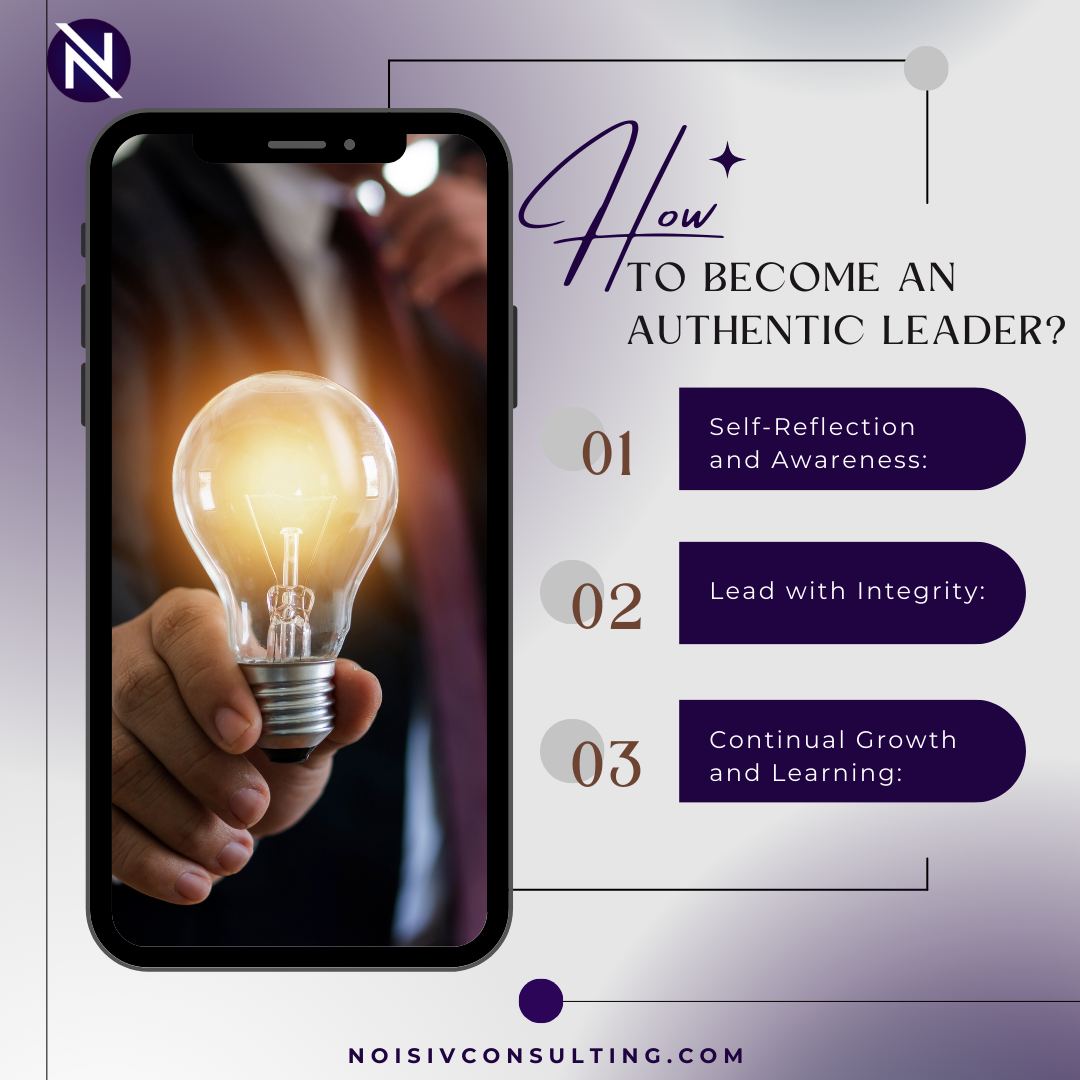In today’s dynamic and ever-evolving business landscape, leadership is no longer solely about authority or power. Authentic leadership has emerged as a powerful paradigm that emphasizes genuine connection, transparency, and integrity. Authentic leaders inspire trust, foster collaboration, and drive meaningful change within their organizations. But how does one embark on the journey to becoming an authentic leader? Here are some pathways to guide you on this transformative quest:
Self-Reflection and Awareness:
Authentic leadership begins with self-awareness. Take the time to reflect on your values, strengths, weaknesses, and motivations. Understand your own biases, fears, and insecurities. Self-reflection allows you to cultivate authenticity by aligning your actions with your core beliefs and values.
Build Genuine Relationships:
Authentic leaders prioritize building genuine connections with their team members and stakeholders. Take a genuine interest in the lives and aspirations of others. Listen actively, empathize with their experiences, and show appreciation for their contributions. Authentic relationships are built on trust, respect, and empathy.
Lead with Integrity:
Integrity is the cornerstone of authentic leadership. Stay true to your principles, even in the face of adversity. Be honest, transparent, and ethical in your decisions and actions. Your integrity will not only earn the trust of others but also serve as a guiding light during challenging times.
Embrace Vulnerability:
Authentic leaders are not afraid to show vulnerability. Acknowledge your mistakes, weaknesses, and limitations. Embracing vulnerability fosters an environment of psychological safety where team members feel comfortable expressing their ideas and concerns. It also humanizes leadership, making you more relatable and approachable.
Foster a Culture of Authenticity:
Create a culture where authenticity is celebrated and encouraged. Lead by example and empower others to be their authentic selves. Encourage open communication, constructive feedback, and constructive conflict resolution. A culture of authenticity promotes innovation, creativity, and resilience within the organization.
Continual Growth and Learning:
Authentic leadership is a journey, not a destination. Commit to continual growth and self-improvement. Seek feedback from others, engage in coaching or mentorship, and embrace new challenges and experiences. Stay curious and open-minded, always striving to expand your knowledge and skills.
Stay Grounded and Humble:
Despite achievements and accolades, authentic leaders remain grounded and humble. Remember that leadership is not about personal glory but about serving others and making a positive impact. Stay connected to your roots, remain open to diverse perspectives, and never lose sight of the bigger picture.
Practice Authentic Communication:
Communication is key to authentic leadership. Be clear, honest, and direct in your communication. Avoid sugarcoating or withholding information, as it undermines trust and transparency. Foster an environment where everyone feels heard, valued, and empowered to voice their opinions.
In conclusion, authentic leadership is not a prescribed set of traits but a deeply personal and transformative journey. By cultivating self-awareness, building genuine relationships, leading with integrity, embracing vulnerability, fostering a culture of authenticity, committing to continual growth, staying grounded, and practising authentic communication, you can become a more authentic and impactful leader. Embrace the journey, and let authenticity guide you in inspiring others and driving positive change in the world.
Also, read:- What are New Trends in Digital Marketing








